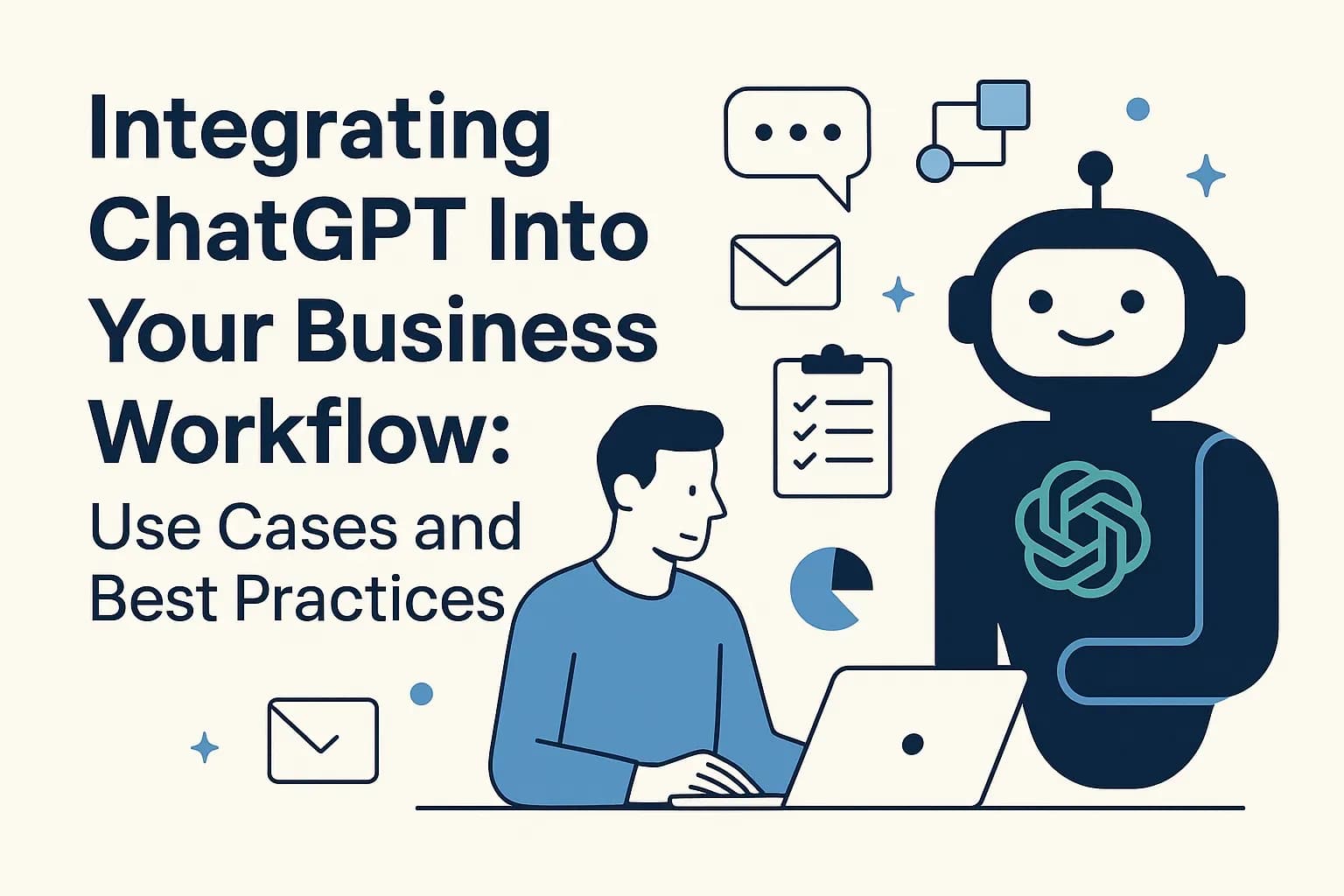Integrating ChatGPT Into Your Business Workflow: Use Cases and Best Practices
Artificial Intelligence is no longer just a futuristic concept—it’s a business tool that’s reshaping how we work today.
At the heart of this AI wave is ChatGPT, OpenAI’s powerful language model. From handling customer queries to generating reports and automating tasks, ChatGPT can be seamlessly integrated into various parts of your business.
This blog will walk you through how businesses are using ChatGPT right now, and how you can implement it with best practices to get maximum value.
🤖 Why Use ChatGPT in Business Workflows?
24/7 automation
Cost-effective scaling
Speedy and consistent task execution
Multi-department use cases
Whether you're a startup or an enterprise, ChatGPT adapts to your workflow with surprising flexibility.
🔧 Common Business Use Cases for ChatGPT
1. Customer Support Automation
Use ChatGPT to respond to common customer queries instantly via:
Chatbots on websites
Email replies
Live chat support systems
Benefits:
✅ Reduces support load
✅ Offers 24/7 response
✅ Improves customer satisfaction
2. Internal Knowledge Base Assistant
Train ChatGPT on internal documents to act as an on-demand assistant for employees:
HR policies
IT troubleshooting
Company FAQs
Example:
An employee asks, "What’s the leave policy for contractors?"
ChatGPT provides an accurate response instantly.
3. Content Creation & Marketing
Let ChatGPT assist your marketing team by:
Drafting blog outlines
Creating ad copy
Writing email campaigns
Generating social media content
Pro tip: Always have a human editor polish AI content for brand tone.
4. Meeting Summaries & Note Taking
Integrate ChatGPT with transcription tools like Otter.ai or Zoom APIs to generate:
Meeting summaries
Actionable insights
Follow-up task lists
Result: Streamlined collaboration and reduced admin time.
5. Lead Qualification & Sales Support
Embed ChatGPT in lead forms to ask follow-up questions and qualify leads automatically. Use it for:
Personalized sales scripts
Answering product questions
Providing instant demos or walkthroughs
6. Data Analysis & Report Summaries
Connect ChatGPT with analytics tools or Excel sheets to:
Summarize performance data
Translate raw data into insights
Generate monthly or quarterly reports
✅ Best Practices for Integrating ChatGPT
🔐 1. Set Clear Boundaries
Define what tasks ChatGPT should and shouldn’t handle. Use human handoffs when conversations become complex.
🔁 2. Train on Your Data
Use custom instructions or API fine-tuning to align ChatGPT responses with your company’s tone, policies, and goals.
⚙️ 3. Integrate via API or Zapier
Use OpenAI's API or tools like Zapier, Make, or n8n to connect ChatGPT with your existing stack:
CRMs
Helpdesks
CMS platforms
Slack / Teams
📊 4. Track Performance
Monitor metrics like:
Response time
Accuracy rate
User satisfaction
Task resolution
Use this data to continuously fine-tune the AI workflows.
👥 5. Keep a Human-in-the-Loop
AI is powerful—but it’s not infallible. Always have human oversight for critical decisions, compliance-sensitive workflows, or customer interactions.
🚀 Final Thoughts
ChatGPT isn’t just a chatbot—it’s a business enabler.
When strategically integrated, it can save hundreds of hours, reduce costs, and elevate customer experience.
Whether you’re automating support, enhancing internal efficiency, or accelerating content creation, ChatGPT offers real ROI for your business.
At RIPEET IT Solutions, we specialize in building AI-powered solutions that work—seamlessly, securely, and smartly.
👉 Need help integrating ChatGPT into your workflow? Let’s talk.
